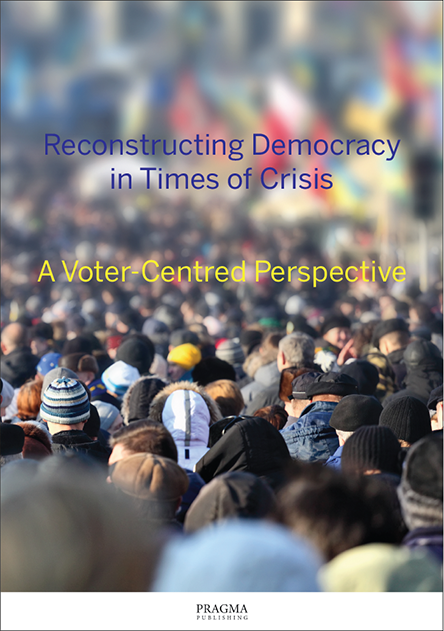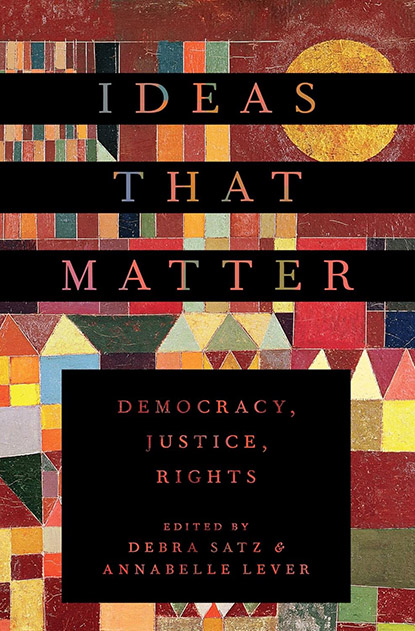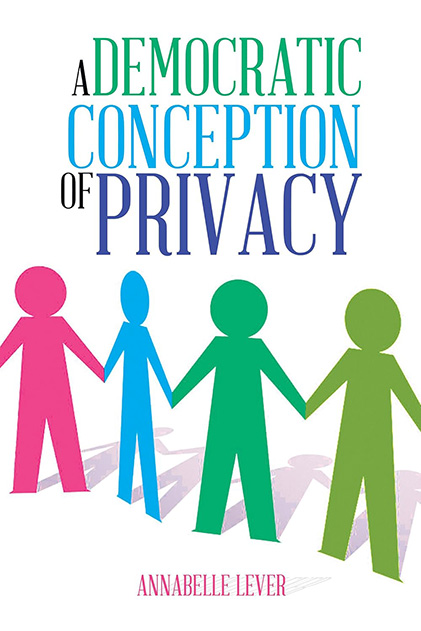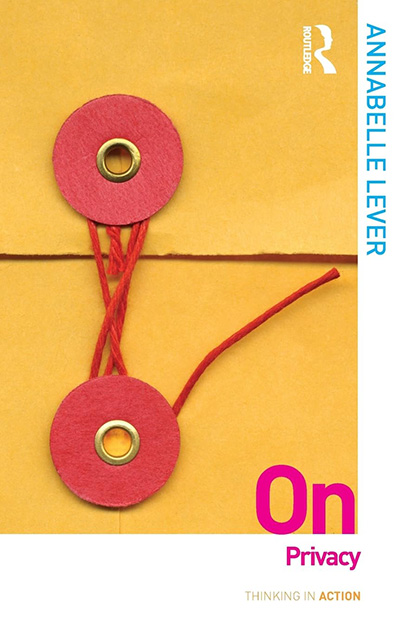Books

Pragma Publishing
Reconstructing Democracy in Times of Crisis - A Voter-Centred Perspective
Annabelle Lever (ed.)
This edited volume is based on the reports of the Horizon 2020 research project Reconstructing Democracy in Times of Crisis: A Voter-Centred Perspective. Their aim is to illuminate the challenges facing advanced democracies from the perspective of voters as moral and political agents, who must decide whether or not to vote and on what criteria they should base their decision. Voters in a democracy are in a paradoxical situation: collectively they will take part in deciding who governs their country and ‘speaks in their name’ but, as individuals, they have no real power at all. While the justification of democratic government rests on the authorisation provided by voters, simply as voters citizens will have little say on the electoral choices presented to them, the political programmes on offer, or the likely consequences of choosing a candidate. In short, being a voter is morally weighty, yet its political consequences are often hard to determine and, for the most part, beyond our control. Not surprisingly, disenchantment with that experience and alienation from electoral democracy are increasingly common phenomena. The reports aim to articulate that experience, and to respond to its challenges. In so doing, they emphasise the limitations of ideas about democracy, of explanations of political behaviour and exhortations to voters that ignore what it is like to be a voter, and the experiences of collective responsibility and of powerlessness that mark that experience for so many.
Published: December 2023
AuthorHouse
De la vie privée
Annabelle Lever
"Annabelle Lever montre très bien à quel point une vie accomplie est aussi une vie privée." - Gil Delannoi, Sciences Po Paris
"La nature et l’étendue de nos droits à la vie privée est une des questions centrales de notre époque. Dans ce livre accessible et agréable à lire, Annabelle Lever examine ce que signifie la vie privée et les liens complexes que celle-ci entretient avec la démocratie. Lever offre une contribution remarquable à notre compréhension de l'importance de la vie privée pour les sociétés démocratiques, en révélant non seulement sa valeur mais, aussi, les coûts qu'elle engendre." – Jonathan Wolff, University College London
Published: July 2023


Oxford Academic
Ideas That Matter: Democracy, Justice, Rights
Debra Satz (ed.), Annabelle Lever (ed.)
In this book, leading philosophers take up three ideas that are prominent in the work of Joshua Cohen. The first idea relates to reinvigorating democracy—improving collective decision-making by free and equal citizens. The second idea found in this volume relates to confronting injustice. What reason do those who have been systematically excluded from democracy’s promise have to obey the law or work together with others who have turned a blind eye on their situation? The third idea might be understood loosely in terms of political principles in an interdependent world. Where traditionally, theories of justice took the nation or the state to set the scope of principles of distributive justice, the rise of new institutions has put pressure on that bounded conception. This collection includes work by Martha Nussbaum, Charles Sabel, Stuart White, Archon Fung, and Chris Lebron, among others.
Published: August 2019
Routledge
The Routledge Handbook of Ethics and Public Policy
Annabelle Lever (ed.), Andrei Poama (ed.)
What does it mean to do public policy ethics today? How should philosophers engage with ethical issues in policy-making when policy decisions are circumscribed by political and pragmatic concerns? How do ethical issues in public policy differ between areas such as foreign policy, criminal justice, or environmental policy?
The Routledge Handbook of Ethics and Public Policy addresses all these questions and more, and is the first handbook of its kind. It is comprised of 41 chapters written by leading international contributors, and is organised into four clear sections covering the following key topics:
- Methodology: philosophical approaches to public policy, ethical expertise, knowledge, and public policy
- Democracy and public policy: identity, integration and inclusion: voting, linguistic policy, discrimination, youth policy, religious toleration, and the family
- Public goods: defence and foreign policy, development and climate change, surveillance and internal security, ethics of welfare, healthcare and fair trade, sovereignty and territorial boundaries, and the ethics of nudging
- Public policy challenges: criminal justice, policing, taxation, poverty, disability, reparation, and ethics of death policies.
Published: October 2018


AuthorHouse
A Democratic Conception of Privacy
Annabelle Lever
Is privacy a threat to sexual equality, social solidarity, and democratic government? Is privacy valuable only if we live in tyrannical regimes or have shameful secrets to hide? Th e answer to these questions, this book maintains, is “no” because there are many forms of privacy that are essential to democratic government and to the types of freedom, equality, solidarity, and individuality that distinguish democratic from undemocratic societies. With chapters on privacy and equality, the value of privacy and on privacy and abortion, this book provides an introduction to philosophical debates on privacy and off ers a distinctive way to think about them.
Published: September 2013
Cambridge University Press
New Frontiers in the Philosophy of Intellectual Property
Annabelle Lever (ed.)
The new frontiers in the philosophy of intellectual property lie squarely in territories belonging to moral and political philosophy, as well as legal philosophy and philosophy of economics – or so this collection suggests. Those who wish to understand the nature and justification of intellectual property may now find themselves immersed in philosophical debates on the structure and relative merits of consequentialist and deontological moral theories, or disputes about the nature and value of privacy, or the relationship between national and global justice. Conversely, the theoretical and practical problems posed by intellectual property are increasingly relevant to bioethics and philosophy and public policy, as well as to more established areas of moral and political philosophy.
Perhaps this is just to say that the philosophy of intellectual property is coming into its own as a distinct field of intellectual endeavour, providing a place where legal theorists and philosophers can have the sorts of discussions - neither reducible to questions about what the law is, nor wholly divorced from contemporary legal problems - which typify debates about freedom of expression, discrimination and human rights. These are all areas in which legal and philosophical ideas influence each other at the level of method as well as of substance. My hope is that this collection of essays will appeal to those who, whatever their professional specialty or training, share an interest in the philosophy of intellectual property, and that it will build upon and advance existing interdisciplinary dialogue and research in this complex, fascinating, and important area.
Published: July 2012


Routledge
On Privacy
Annabelle Lever
This book explores the Janus-faced features of privacy, and looks at their implications for the control of personal information, for sexual and reproductive freedom, and for democratic politics. It asks what, if anything, is wrong with asking women to get licenses in order to have children, given that pregnancy and childbirth can seriously damage your health. It considers whether employers should be able to monitor the friendships and financial affairs of employees, and whether we are entitled to know whenever someone rich, famous or powerful has cancer, or an adulterous affair. It considers whether we are entitled to privacy in public and, if so, what this might mean for the use of CCTV cameras, the treatment of the homeless and the provision of public facilities such as parks, libraries and lavatories.
Above all, the book seeks to understand whether and, if so, why privacy is valuable in a democratic society, and what implications privacy has for the ways we see and treat each other. The ideas about privacy we have inherited from the past are marked by beliefs about what is desirable, realistic and possible which predate democratic government and, in some cases, predate constitutional government as well. Hence, this book argues, although privacy is an important democratic value, we can only realise that value if we use democratic ideas about the freedom, equality, security and rights of individuals to guide our understanding of privacy.
Published: January 2012
